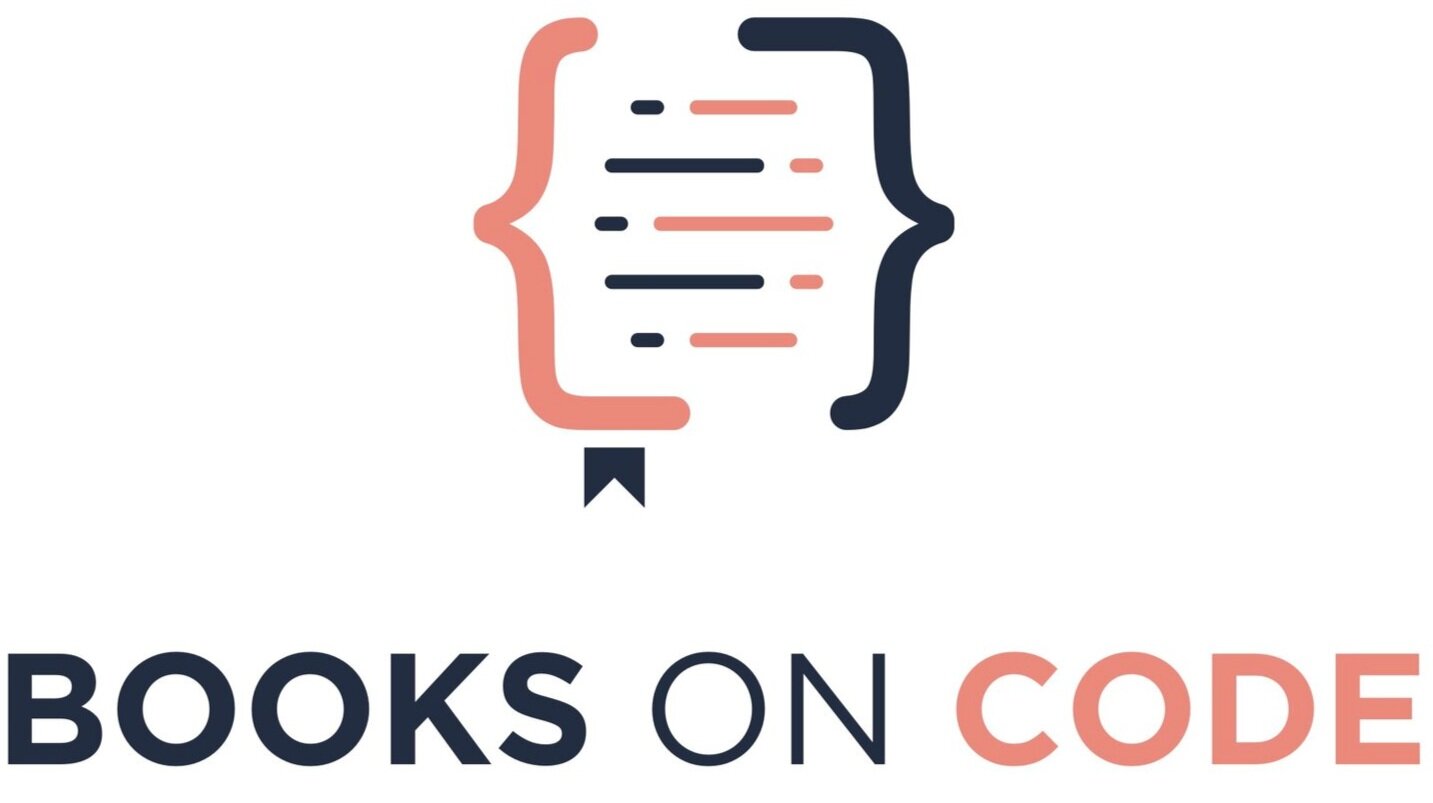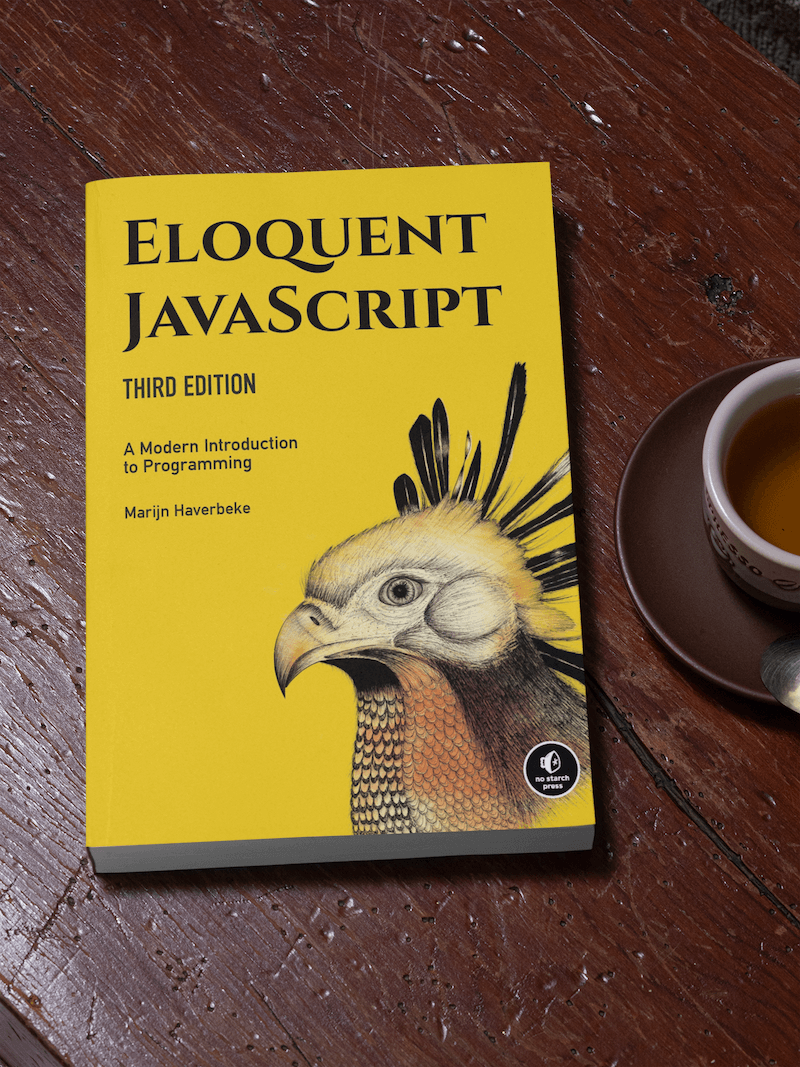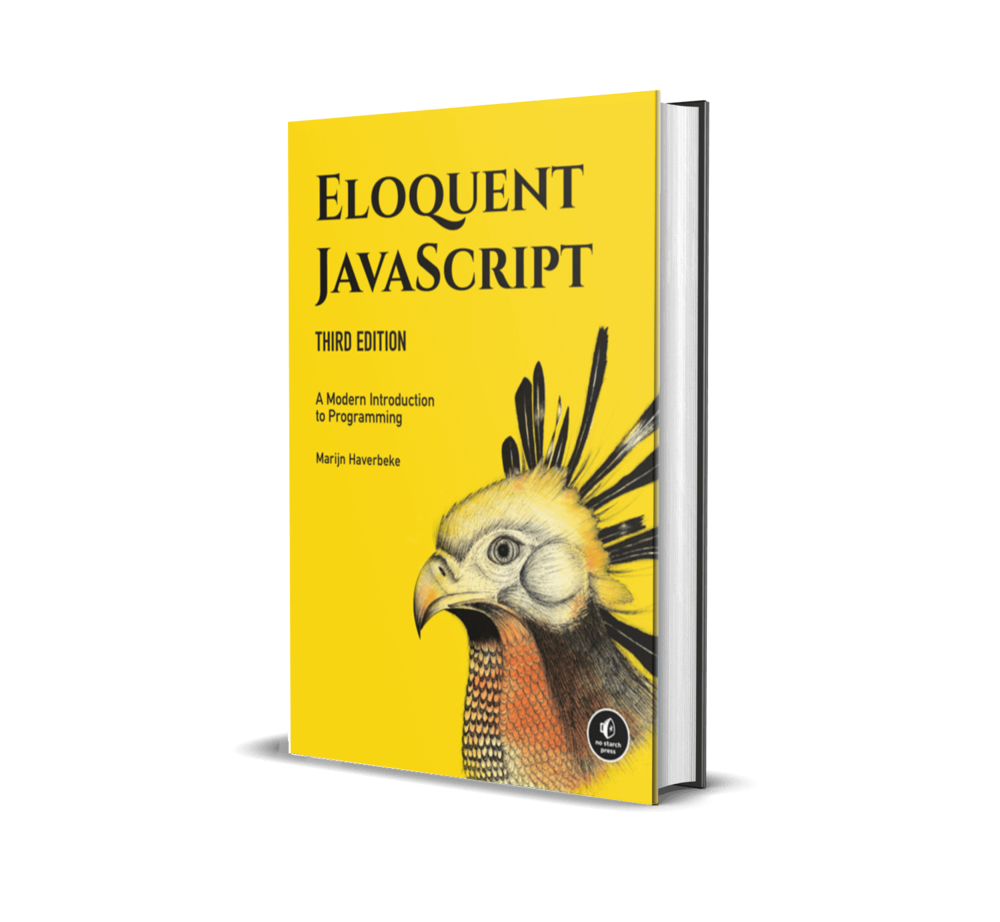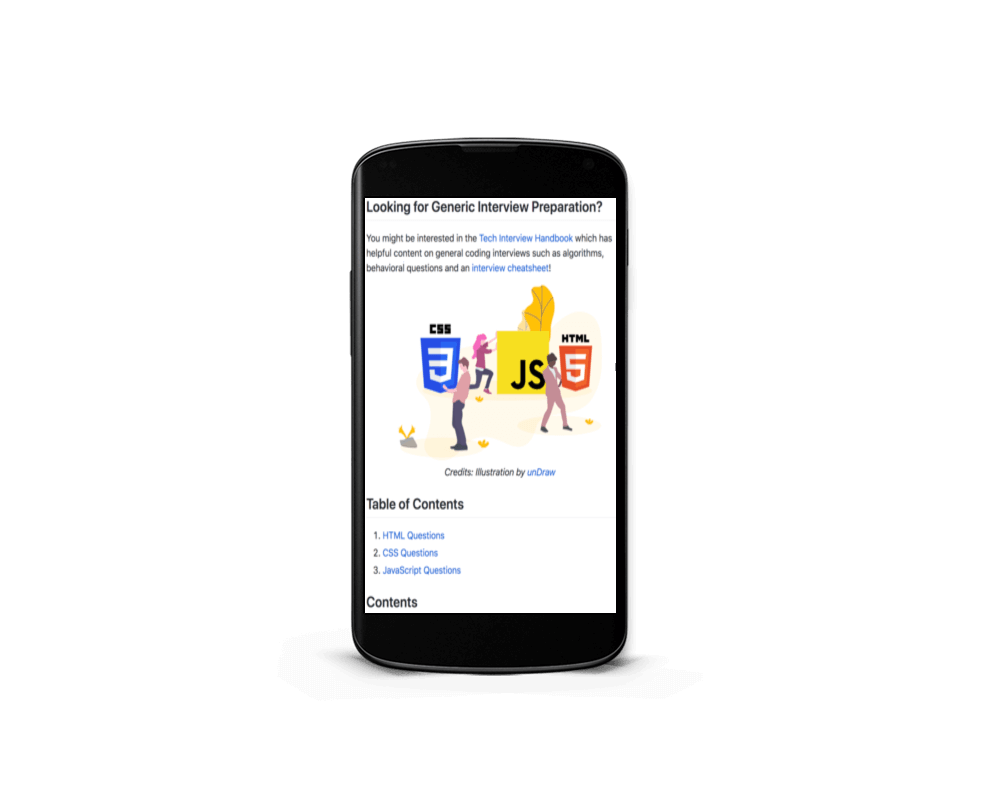5 Top Free Books for Front-end Web Developers
Free programming books are in abundance. You can become a self-taught front-end web developer at no cost, but scouting the resources to get started isn’t always easy.
I took the guesswork out of the search for free programming books by compiling a list of stellar and highly-regarded best books for front end development.
In this review, “books” are defined loosely as resources you can read in chronological order without direct interaction. While some of these resources are free from a website, this definition suggests you can theoretically print out these resources and read them from your nightstand.
Read on to discover the best programming books for front-end web developers.
READ THE SERIES ON FRONT-END DEVELOPMENT
Other Books on Code articles about Javascript and front-end development:
5 Free Programming Books: Best Books for Front-end Development
With these free programming books, you can create a curriculum for yourself to learn front-end web development from total beginnings to advanced users and beyond. I have chosen books on front-end development that focus on different areas, such as HTML & CSS, Javascript, and even getting that tech job.
Here are the best free books for front-end web developers:
Free Book #1: HTML & CSS is Hard
HTML & CSS is Hard is a free beautifully-designed and explained deep-dive into HTML and CSS. The diagrams are clean, modern, and intuitive. The writing style is to-the-point, conversational, and easy to follow. It’s truly a stunning free resource that any beginning front-end developer should read.
The guide explains itself best:
This 14-chapter tutorial is one of the friendliest HTML and CSS guides on the Internet. We’ll walk you through everything from selecting a good text editor (which is surprisingly important) to building full-fledged, professional-quality web pages from scratch.
The guide is also toting itself as “the only introduction to HTML and CSS that you’ll ever need.”
So what is contained in this guide? Quite a lot.
Below I include roughly everything this guide teaches. While much of what is there is basic and for true beginners, some sections are valuable enough to review for anyone. For example, I haven’t hosted local web fonts in ages, so it’s worth revisiting for me.
The guide explains…
What HTML, CSS, and Javascript are and how they work together.
Text editors and ways to use them.
Creating, navigating, and building file systems.
Structure of an HTML file.
Titles, paragraphs, headings, unordered lists, ordered lists, emphasis, strong, line breaks, and horizontal rulers.
Anchors, links, link targets, and the difference between absolute, relative, and root-relative links.
Images, various image formats, image dimensions, and alt text.
Setting document language and character sets.
HTML entities such as reserved characters, quotes, and UTF-8.
Stylesheet setup and linking.
CSS comments.
Setting multiple properties to an element and selecting different elements.
Units of measurement such as pixels and ems.
Styles for lists.
Reusing stylesheets site-wide.
Styles for underline, text alignment, font weight, and font style.
How CSS cascades: page styles vs inline vs multiple stylesheets.
The box model: inline elements vs block elements, box alignment, changing block behavior, and block spacing.
Class selectors and how to re-use style with them.
Divs and div containers.
Pseudo classes and hover state.
ID selectors and URL fragments.
CSS specificity
Floats and layout behavior for various layout types.
Flexbox
Element positioning with relative, absolute, and fixed.
Positioning elements for menus, dropdowns, and animations.
CSS media queries, mobile-first development, and disabling the viewport.
Making images responsive for various screens including retina.
Semantic HTML with article, section, nav, header, footers, asides, and more.
HTML forms and its various form fields.
Web typography: web fonts, font hosting, and text styles.
Free Book #2: Eloquent Javascript
Eloquent Javascript is free digitally. If you buy a hardcopy version, you get a bonus chapter.
Among books on front-end development, Eloquent Javascript by Marijn Haverbeke is an all-the-rage, free book now in its third edition. The developer community is buzzing about this title, which teaches not just Javascript fundamentals such as values, functions, and data structures, but also modern principles and practices with modules and asynchronous programming.
If you want to support the author, you can also buy a paperback copy. If you do, you get a bonus chapter.
The writing style of Eloquent Javascript is fantastic. It’s organized, conversational, and simple, but it also has humor. To see what I mean, here is an excerpt from its introduction:
Programming is the act of constructing a program—a set of precise instructions telling a computer what to do. Because computers are dumb, pedantic beasts, programming is fundamentally tedious and frustrating.
Fortunately, if you can get over that fact, and maybe even enjoy the rigor of thinking in terms that dumb machines can deal with, programming can be rewarding. It allows you to do things in seconds that would take forever by hand. It is a way to make your computer tool do things that it couldn’t do before. And it provides a wonderful exercise in abstract thinking.
Have you ever encountered a definition of programming so well explained and truthful — that strikes the core of what we are all about: explaining chores to dumb machines and enjoying the pain of it all?
Yup. Eloquent Javascript nails it.
Free Book #3: You Don’t Know JS Yet: Get Started
You can read You Don’t Know JS Yet for free on GitHub, but there is a small cost if you want print or ebook copies on Amazon. You Don’t Know JS Yet by Kyle Simpson is a well-regarded series, loved by web developers everywhere by going in-depth into Javascript’s mind.
You Don’t Know JS Yet is actually an entire series of six titles (so really, I recommended 10 free books today). If you want to know more about, I wrote an in-depth review of Get Started.
Free Book #4: Front-end Developer Handbook
One of the most loved, free books on the internet Front-end Developer Handbook is available on the web, as a PDF, and an epub file — all for free.
I have so much love for this handbook that I also wrote an in-depth review of the Front-end Developer Handbook. The guide provides links to tons of resources, both paid and free, as well as a roadmap of the developer journey. This guide serves as a reference for any front-end web developer seeking what to learn next.
This guide also includes more practical career advice about front-end web development such as about salary expectations, job titles, working on a team, interviewing, and whether to specialize or generalize.
Free Book #5: Front-end Interview Handbook
Imagine you deep-dived into the four previous books and you feel ready to start your career as a full-time front-end web developer. The Front-end Interview Handbook, free to read on GitHub, is about acing the front-end developer technical interview and brushing up on all that you had learned.
The book is organized into three types of technical interview questions: HTML questions, CSS questions, and Javascript questions. Each section includes a question, a detailed answer, and links to free resources to learn more.
The value of the guide: these questions are challenging, and the answers are not easily discovered by following guides or doing side projects. Example interview questions are “How do you serve a page with content in multiple languages?” or “Are you familiar with styling SVG?” or “What's a typical use case for anonymous functions?”
If you really want to test yourself, make the Front-end Interview Handbook your first stop.
Thank you for reading about these free books on front-end development. If you liked this article, don’t forget to share it with the front-end web developers you know. These free books are truly great and worth knowing and sharing.
At Books on Code, my mission is to inform you on not just great learning resources, but to have fun and share excitement for learning. If you want to read more technical books and learn skills faster and with more enjoyment, sign up for my free email course, Get the Most From Technical Books. I am happy to be your companion on your learning journey.
If you’re interested in going beyond reading and taking some courses, I highly recommend Coursera’s HTML, CSS, and Javascript for Web Developers by Johns Hopkins University. The instructor, Yaakov Chaikin, is one of the best online instructors I have ever had. And he’s funny, too.
I am also in love with Codecademy’s Front-End Engineer Career path, which I am in the middle of taking. I’ve never experienced a program that holds my hand so well, is so thorough, and makes learning so easy. Science backs that the way Codecademy teaches (with interactive assignments and frequent quizzes) is one of the most brain-friendly ways to learn.
Also, if you’re interested in even more free resources, I have over 70 vetted learning resources for developers in this article.. I will see you there. 👋😊







